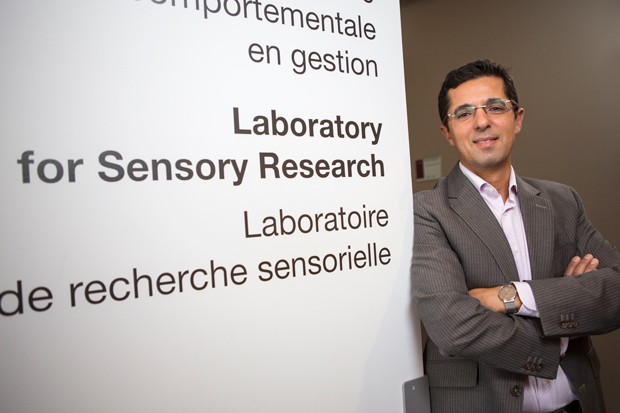New research reveals “soft touch” of ethical marketing
Do world-saving claims like “not tested on animals” and “phosphate free” sell shampoo and soap? The answer is yes — when there is consumer contact, and the claims are congruent with product benefits.
A new study from the John Molson School of Business has proved these statements make consumers more likely to open their wallets, especially when their sense of touch is appealed to as well as their sense of social justice.
In a paper recently published in the Journal of Business Ethics, Concordia marketing professor Onur Bodur reveals that for ethical claims to help sell products, they must align with the product’s primary benefits. Those benefits are either functional, like the power from alkaline batteries, or symbolic, like the team spirit evoked by a Montreal Alouettes jersey.
For the study, Bodur teamed up with two of his departmental colleagues, research assistant Ting Gao and Bianca Grohmann, an associate professor. They asked 311 participants to rate the marketing of utilitarian products (cough syrups and printer ink cartridges) and symbolic products (high-school rings and hockey-team car flags).
The results showed that for ethical marketing to work, utilitarian claims like “made with organic ingredients” need to be matched with utilitarian products: items that are actually used by consumers. Symbolic claims like “fair trade” would ideally be paired with symbolic products – something consumers use to symbolize an attitude or indicate a connection to a certain group.
The team’s research also uncovered the fact that ethical claims are more likely to lead to a purchase when consumers will have physical contact with the product during its use. So making a statement like “made from organic cotton” could boost t-shirt sales — but apply “biodegradable” to something like printer ink, which barely requires any tactile interaction, and sales won’t be affected.
“The importance of touch relates to what’s known as the positive contagion effect,” says Bodur, who is also director of the Centre for Multidisciplinary Behavioural Business Research.
“That means that consumers are quicker to perceive increased benefits from products that involve a higher degree of physical contact, like something that you eat or wear. This is due to consumers’ belief that ethical benefits can be transferred through physical contact.”
This research has clear practical applications for the marketing world. Incorporate utilitarian ethical claims for a practical product that will come into close contact with consumers — be it moisturizer, bread or paper towels — and sales are likely to increase.
According to Bodur, “if managers want to reap the benefits of sustainable marketing, they have to carefully consider the amount of physical contact consumers will have with their products, alongside the ethical claim they’re making about that product.”
